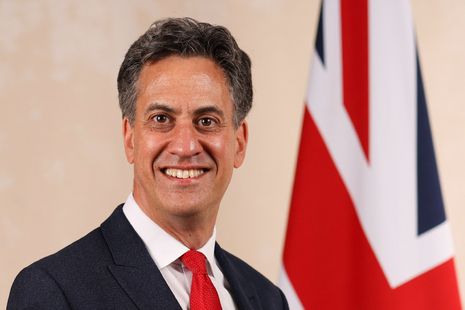Even with an ETS price of €55 per tonne, petrol prices would remain below the average of the last 20 years when adjusted for inflation. Alongside this, significant improvements in vehicle fuel efficiency over recent decades mean that the amount of petrol needed to drive 100 km has decreased in the past decades. But in the short-term, as the ETS2 price will make petrol, diesel and gas more expensive, there is concern that it could disproportionately hit poorer households.
In 2027, the EU will introduce a new emissions trading system, ETS2, that will levy a carbon price on diesel, petrol and heating fuels alongside its current carbon market for industrial emissions. This could raise nearly €300bn between 2026 to 2032.
As such, it presents an opportunity to help transition the EU away from fossil fuels and imported oil, a new T&E study shows. Reinvestment in green infrastructure and targeted redistribution could support a just transition, it says, and calls for 50 per cent to 75 per cent of the revenues to be given back to low and middle-income households in the form of financial support to do so, who otherwise may be hardest hit by the levy.
T&E recommends that governments redistribute half of the nearly €300bn revenues collected from the ETS2 between 2026 to 2032 directly to the lowest earners within countries, with the remaining half to be invested in green infrastructure. This includes, among others, subsidies for affordable electric cars, better public transport and charging infrastructure.
Federico Terreni, climate policy manager at T&E, said: “ETS2 is a €300bn opportunity to liberate Europeans of expensive oil imports and reduce pollution from vehicles. The social concerns are real but can be addressed by redistributing part of money and using the rest to invest in electric mobility and shared transport.”
Although the EU has set up a Social Climate Fund (SCF) to ensure revenues from the ETS2 are redistributed to poorer households, T&E recommends that the EU Commission extend loans directly to member states so that they can immediately start implementing policies and measures to support consumers and make carbon saving investments.
In emissions trading, the carbon price can fluctuate widely. Since these prices cannot be capped at national level, T&E calls for reforms to the EU’s Market Stability Reserve to keep prices close to €55 per tonne of CO2.
ETS2 prices will be higher if other policies, such as the EU-level vehicle CO2 standards, national-level measures, or zero-emission zones are delayed or fail to deliver, says T&E.
© 2019 Perspective Publishing Privacy & Cookies








Recent Stories